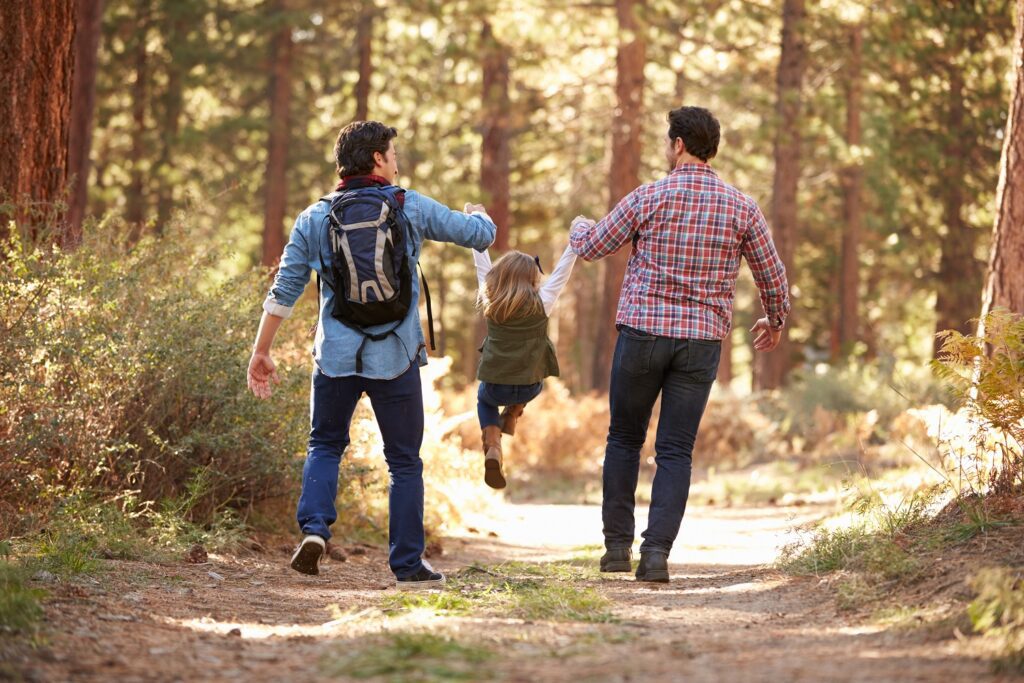LGBT+ Fostering: Dispelling the Myths
Date published
10 November 2020

A question we receive time and time again is what makes a good foster carer?
Our answer is always the same – you need a willingness to learn and adapt (because the most amazing things in life seldom come easy), bucket loads of kindness and an unwavering commitment to provide care for vulnerable children. You also need time, stability within your environment and a reliable support network to lean on during transition periods.
We could go on and on about what qualities make a great foster carer, but there’s one thing that needs to prerequisite the conversation – none of them have anything to do with a person’s sexual orientation or gender.
Despite contradictions floating around the internet and misguided prejudices against same-sex couples, anyone has the option to foster children, including gay, lesbian, bisexual and transgender couples.
The government allowed LGBT+ fostering and adoption in 2005 when the much anticipated and long overdue Adoption and Children Act passed into law. Five years later, the Equality Act 2010 provided further support by preventing agencies from discriminating against LGBT+ couples when they make an application.
Under the same Adoption and Children Act, anyone has the right to apply as a foster carer regardless of marital status, as long as they can provide a loving, stable and supportive home for children.
The misconception that single LGBT+ people can’t foster is especially prevalent when it comes to gay men (and men in general), who often feel excluded from the process due to the importance traditionally placed on maternal figures within the home. However, thousands of gay and heterosexual men successfully foster solo in the UK, often acting as the first positive father figure in many vulnerable children’s lives.
Unfortunately, there are many unhelpful myths about LGBT+ fostering that prevent individuals from starting their journey. We won’t pay them more attention here – instead, let’s take a look at the facts.
The most recent statistics from The Fostering Network show that over 65,000 children are living with around 55,000 foster families across the UK, but there’s a total of 83,000 children currently in care. The figures clearly show a considerable shortage in placements, and thousands more foster families are needed each year to meet demand.
Thankfully, LGBT+ people form an essential pool of prospective carers, and there’s an undeniable upward trend in both fostering and adoption applications within this community. In 2019, same-sex couples accounted for 1 in 7 adoptions in England.
According to research from The Guardian, LGBT+ carers are far more willing to consider children who are harder to place, including teenagers, those with special needs and siblings.
In their findings, Tor Docherty, the Chief Executive of New Family Social, explains there are several reasons for this. Firstly, LGBT+ people tend to approach parenting in a non-traditional way. Then, they’re more flexible as adoption is often their only route into parenthood.
She goes onto add: “While many heterosexual couples consider adoption following fertility problems, and because of this can be more focused on babies or younger children, adopting one baby or infant might not necessarily be so important for LGBT people”.
Alongside this, there is an argument LGBT+ people empathise with the most vulnerable children more authentically because of their personal experiences with marginalisation and discrimination, making difficult transitions far easier.
Unfortunately, many people still believe that same-sex couples cannot nurture a child as successfully as their heterosexual counterparts. However, there’s no evidence to support this wildly outdated claim, with studies showing there’s no difference on a child’s physical, emotional or spiritual health.
In fact, there are plenty of unique advantages of raising children in a same-sex household. Couples don’t rely on gender stereotypes or social constructs of who is more motherly or fatherly. Instead, they share day-to-day chores more equally and rely on their personal qualities and skills. As a result, children witness a fairer family dynamic which prioritises harmony, equitability and shared responsibility.
While children living with same-sex carers sometimes feel different than their peers, they often have a better understanding of the diversity of families in the world, making them more empathetic and understanding.
Plus, despite encountering adversity from an ill-informed few, studies also show that these children have greater resilience in navigating difficult situations.
In 2006, researchers studied children raised in lesbian families and found no differences in social and developmental behaviour from children raised in heterosexual households. However, they did conclude that the children with lesbian caregivers displayed increased confidence, thanks to a greater level of active parental involvement.
You’re never alone as a foster carer, and there’s plenty of support on hand to make the process easier for LGBT+ families.
Here at Olive Branch Fostering, we offer 24-hour telephone support, support groups and ongoing training to help with the transition. We also provide more in-depth support in the form of care workers, who visit your home regularly to ensure you and your foster child are happy, settled and comfortable.
Additionally, there are plenty of LGBT+ specific charities dedicated to helping carers, such as New Family Social who work with agencies to make their services as inclusive as possible. For more general resources, The Fostering Network provides a wide range of support to prospective carers of all orientations, ethnicities and religions.
At Olive Branch Fostering, we strive for inclusivity and welcome all prospective foster carers, regardless of sexual orientation and gender. With a wealth of support, advice and assistance available, we help you at every step on this life-affirming journey.
Whether you’re ready to start your fostering journey or just want to find out more about the application process, our friendly team is on hand to answer all your questions.
Simply call us on 01706 558910, with no obligation to go any further, or drop us an email and one of our team members will get back to you as soon as possible.
Fostering insights
10 November 2020
Get in touch with us today
Contact us
